Korea is poised to host the 2025 Asia-Pacific Economic Cooperation (APEC) summit in Gyeongju from October 31 to November 1, a city rich in cultural and historical significance. The Gyeongju forum will offer a unique opportunity for the 21 member economies of APEC to engage in dialogue on economic growth, sustainability, and regional cooperation. As Gyeongju prepares to showcase both its ancient heritage and its modern innovations, it will highlight how culture can drive creativity and economic prosperity in the Asia-Pacific region.
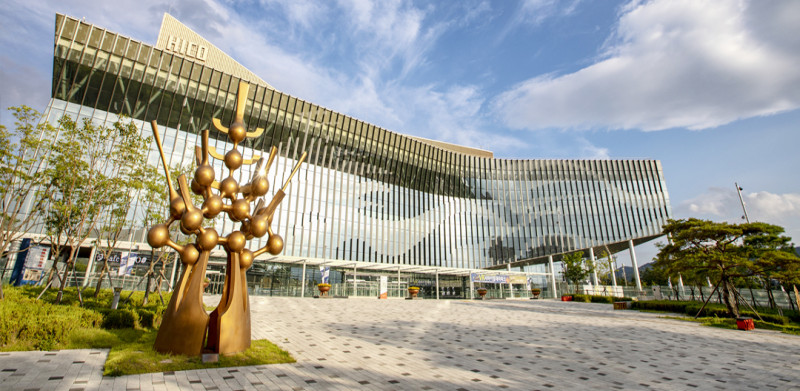
The relationship between APEC and Korea is deeply rooted in history and plays a pivotal role in the economic and diplomatic landscape of the Asia-Pacific region. The concept of APEC itself was born from Korea's vision and initiative. The idea of establishing a regional economic cooperation body was first publicly presented by Australian Prime Minister Bob Hawke in a speech delivered in Seoul on January 31, 1989.
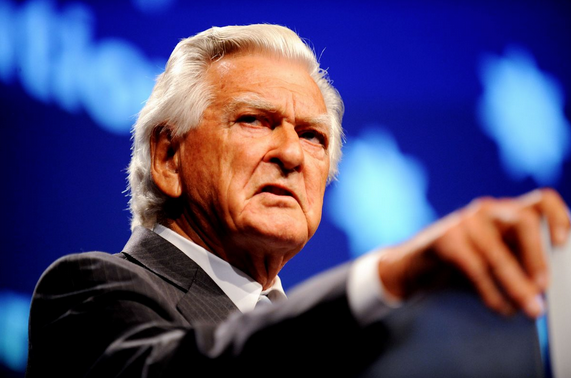
The discussions that followed laid the groundwork for APEC's creation. Less than a year later, APEC was officially established at the Ministerial Conference in Canberra on November 6, 1989, with Korea and Australia serving as the founding drivers of this multilateral economic forum.
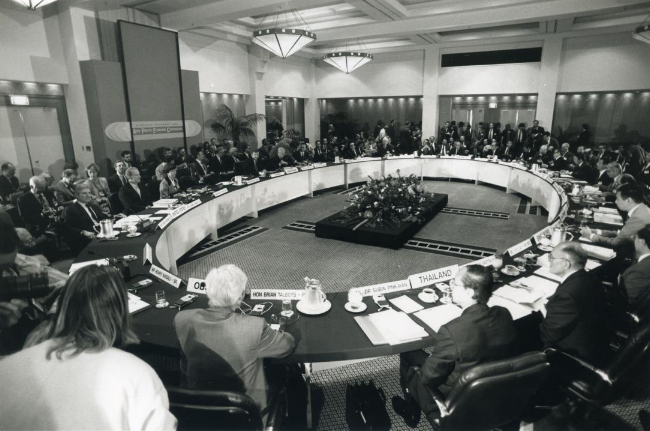
When APEC was launched, its membership consisted of 12 countries, including Korea, Japan, the United States, Canada, Australia, New Zealand, and six ASEAN nations (Thailand, Malaysia, Indonesia, Singapore, the Philippines, and Brunei). Over time, the organization expanded to include China, Chinese Taipei, Hong Kong, Mexico, Papua New Guinea, Chile, Vietnam, Russia, and Peru, bringing the total number of member economies to 21. Korea’s role in APEC’s founding and its continued active participation underscore its commitment to regional economic cooperation and growth.
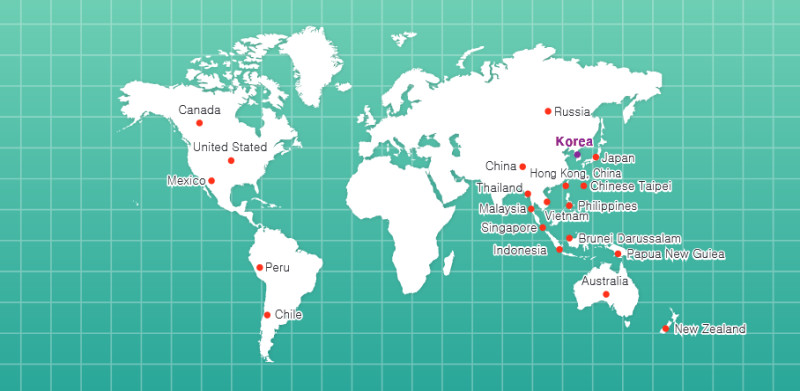
Korea has consistently played a leadership role within APEC. In 1991, Korea hosted the Third Ministerial Meeting in Seoul, where the Seoul Declaration was adopted. This declaration emphasized the importance of balanced and interdependent development in the Asia-Pacific region, stressing the need for cooperation to bridge economic disparities and effectively utilize both human and natural resources. The Seoul Declaration set the foundation for APEC's long-term development and has shaped the organization's mission in fostering regional economic integration.
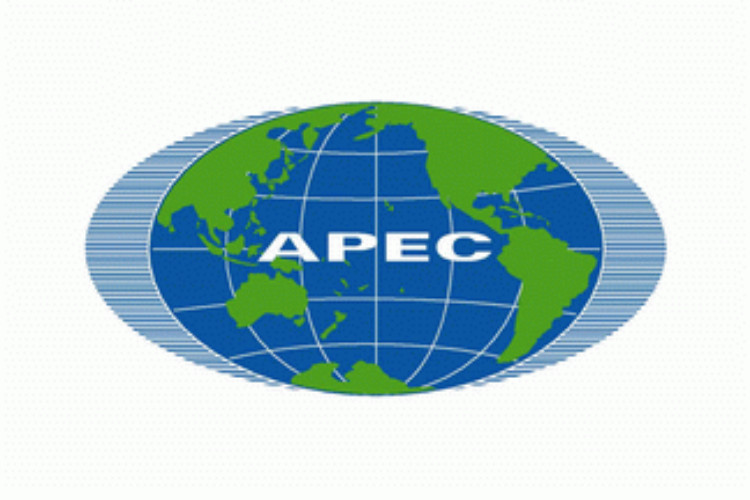
. In the same year, Korea initiated the design of the APEC logo at the Seoul Ministerial Meeting. The globe-shaped logo, in green, blue, and white, symbolizes APEC’s global reach and its commitment to prosperity, health, welfare, peace, and stability in the Asia-Pacific region. This emblem has since come to represent the collective aspirations of the region’s diverse economies. A refreshed version of the logo, introduced in 2007, further modernized its design to align with evolving global communications.
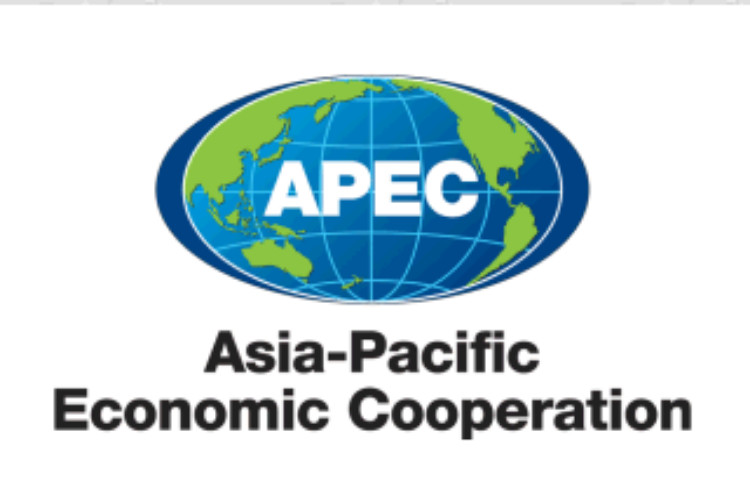
One of the most notable milestones in Korea-APEC relations occurred during the 2005 APEC summit in Busan, which Korea hosted under the theme “One Community: Meet the Challenge, Make the Change.” The Busan summit underscored Korea’s leadership in advancing regional trade liberalization. The adoption of the Busan Roadmap was a landmark achievement, aligning APEC's priorities with the broader goals of free trade and regional economic integration. This summit demonstrated Korea’s capacity to not only facilitate dialogue among APEC member economies but also to shape the regional economic agenda.
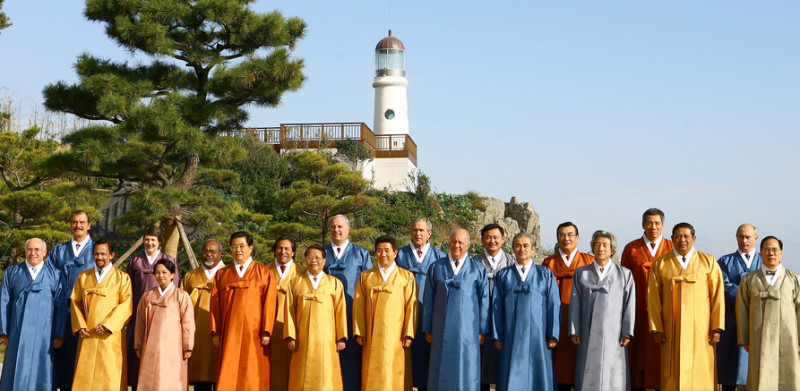
Since its founding, Korea’s engagement with APEC has played a key role in liberalizing its economy and fostering closer ties within the Asia-Pacific region. As of 2024, over 76% of Korea's exports and 68% of its imports are with APEC economies. Eight of Korea’s top ten trading partners are APEC members, including China, the United States, Vietnam, Japan, Chinese Taipei, Australia, Hong Kong, and Singapore. Moreover, 63.8% of Korea's outbound foreign direct investment (FDI) flows to APEC economies, while 51.6% of inbound FDI comes from APEC nations. This economic interdependence underscores the importance of APEC to Korea’s economic strategy.
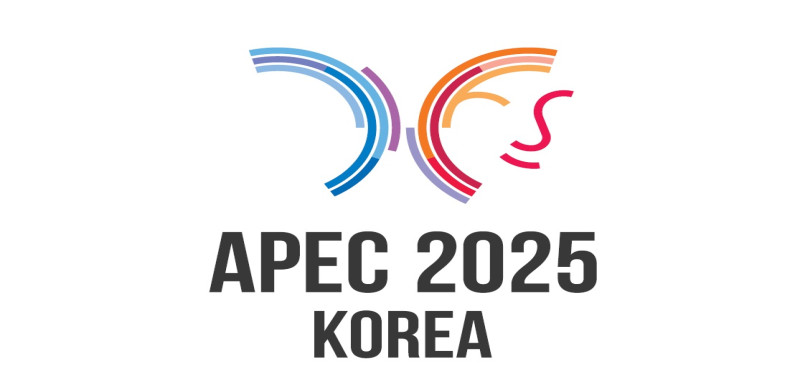
The upcoming 2025 APEC Summit in Gyeongju is particularly significant as it marks the first time Korea will host the event since 2005. This summit offers Korea an opportunity to further consolidate its role as a key player in APEC and as a mediator between developed and developing economies. Given Korea’s strategic positioning within APEC and its growing influence on the global stage, the 2025 summit will reaffirm Korea’s status as a confident and dynamic global actor, committed to fostering economic cooperation and sustainable development in the Asia-Pacific region.
How about this article?
- Like6
- Support0
- Amazing1
- Sad0
- Curious0
- Insightful0


